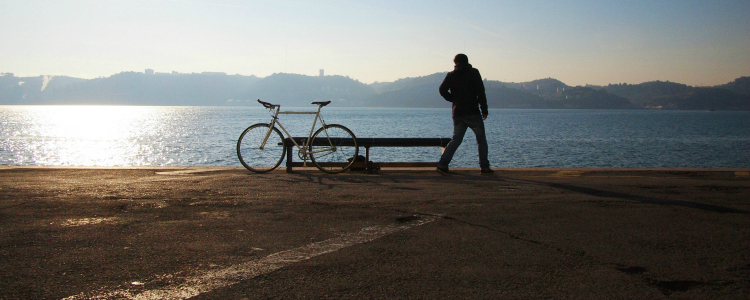Being a Male with an Eating Disorder in the 1970s
It was the summer of 1977. I had just graduated from college, summa cum laude with honors. I had gotten accepted to an Ivy League graduate program and decided to take a year off before enrolling. I had applied for an internship in Washington DC with my congresswoman and planned to spend the year in DC. Unfortunately, the internship did not come through. With DC off the table, I did not really have a Plan B for my “gap” year.
After graduating from college in May, I decided to shed some of the extra weight I had put during my senior year. I had been on the occasional diet before, but it had been a means to an end—mostly to get in better shape for sports. This time it was more for cosmetic reasons, and by the end of the year, I was noticeably thinner. But, with the absence of a Plan B and graduate school in the distance, I faced a long hiatus for someone who had thrived on academic achievement.
By the time I got to graduate school in the fall of 1978, I would have met the clinical diagnosis of anorexia nervosa—had there been such a diagnosis at the time.
I knew something was wrong.
I knew something was wrong physically, and perhaps mentally, as well. I visited the school’s infirmary to get the advice of a doctor. His diagnosis and treatment after examining me was straightforward–while the cause was unclear, I just needed to gain weight. He said I should be thrilled to have such a problem. He also suggested that in order to gain muscle, I should start going to the gym. This infirmary visit occurred in 1979, so I don’t blame the doctor. Karen Carpenter’s death was still 4 years away. And, after all, men didn’t get eating disorders.
After I graduated with my masters, I spent another couple of years as a research assistant, taught English in Japan for 6 months, and then did some marketing of junior year aboard programs for my alma mater, all the while carrying my eating disorder along with me. It was not until I returned from Japan, without any particular direction or career choice on the horizon, that things got worse for me. Eventually my mom and sister intervened and told me I needed to find help—that they couldn’t watch me waste away. While that was not the sole reason, it was a very important catalyst for me to come to the realization that I was so “in control” I was completely out of control, and that I actually was not able to feed myself back to health. I knew I needed to put myself in a place where the decision of whether and what to eat was removed from my control. I was ready at that point to get healthier but I was literally unable to do it myself without getting out of my current environment.
I found a local hospital that was willing to treat me—they actually had an eating disorder unit—but my insurance company denied me coverage. Maybe if I had been depressed it would have been easier to fit into standard diagnostic categories, but a man with an eating disorder as the primary diagnosis was just not in anyone’s frame of reference at the time. I was still committed, however, to getting help and turned to teaching hospitals around the country with a reputation for treating eating disorder patients and told them my story, my need for treatment, and the issue I had with insurance coverage. I told them I was without insurance and not able to pay for my treatment. They told me there were beds available for uninsured patients and they were willing to let me know when one came available. Shortly thereafter UCLA called me on a Friday and by Monday I was on a psychiatric ward where I spent the next two months in group and individual therapy and eating my way toward health. I was the lone male among the eating disorder patients on the ward, although the ward was mixed with people with other psychiatric disorders. But among the eating disorder patients, I was definitely a unicorn and viewed with some suspicion. I left having made progress but still far from healthy and with a long path in front of me. That was 30 years ago. The experience changed my trajectory but it was just the start of a long process of reconstructing my life.
How did I even know I had an eating disorder at the time? And was I ever actually diagnosed with an eating disorder? After all, it was rarely talked about for women, let alone for a man. I read Hilde Bruch’s The Golden Cage and, while the stories were mostly about teenage girls, I saw enough similarities in my behavior and finally had a name for what I was experiencing. This “self-diagnosis” directed me to certain hospitals and treatments. To this day, I’m not sure if my primary psychiatric diagnosis was ever an eating disorder. But I felt a little less lonely; moreover, I had a label that allowed me to talk about what I needed from treatment. But there were also differences in my experience as a man with anorexia, and I really had no place to turn for support.
After I left the hospital and returned to my life at home, I looked for a therapist who could help. I had no luck finding a therapist who specialized in treating eating disorder patients, much less one who understood the issues of being a man with an eating disorder. I bounced from therapist to therapist for the next couple of years, with none being particularly effective for me. I also was on and off antidepressants during this time. They provided some relief to a chronic low-grade depression I suffered from, but they were not the catalyst to real change that I had hoped they might be. Finally, I just gave up on therapy and started living my life. I would not necessarily recommend this course of action to someone today but, at a certain point, it felt like the right course for me.
Stabilizing my professional and social life.
One of the first things I did was to work on stabilizing my professional life. I was a high achiever and since graduate school I had “dabbled” at several different types of jobs in which I was “underemployed” and allowed me time to practice the many rituals I had surrounding food and exercise. But I knew to get healthy I needed more stability, structure and purpose in professional life, and I finally found a job as a trainer in a financial services firm. I believe to this day that job helped save my life as it gave me structure and, eventually, helped build my confidence in being able to make a go of it in the adult world. While I still had many issues around food – that would linger for years – the job put me out in the world and introduced me to the messy imperfections of people working their way through their days.
I also very slowly began the process of restarting my social life. Once in recovery, it was still years before I felt okay about putting myself out there in dating settings. And it took even more years before I felt ready to actually enter a relationship.
Progress professionally came more quickly for me than progress socially. The one part of the eating disorder that has been the ‘stickiest” for me is social isolation. The secrecy and privacy I needed to practice my routines and rituals turned out to be the last and hardest symptom to fully unwind. Even with greatly diminished routines around food and exercise, I remained somewhat of a loner and relatively isolated socially. Gradually, with quite a bit of focus, energy, and a partner who was a real catalyst for me to change, this shifted too.
Maybe because I lived with the disease for so long, or maybe because I self-diagnosed before the psychiatric community had a category to label me, I never felt my “maleness” mattered all that much in my recovery. At a certain point, as the years went by, eating and exercise shifted from being important organizers of how I spent my time, and my work and personal life became more the focus. It was a gradual shift with occasional leaps of progress along the way. Yes, I may have gaps in my social maturation, but nothing could be done with that other than to live in the moment. And when I disclosed to a new partner that I’d had an eating disorder–and I always disclosed it when the time was right–there was curiosity. I’ve never experienced anything but support and a desire to understand.
So, how much has being a man mattered to the diagnosis, treatment, and recovery from my eating disorder? Certainly, in the early days it mattered a lot. The lack of diagnosis or available treatments had a big impact when I was at my most acute phase of the disease. But later, as I moved more into the “management” of the disease and slow progress toward recovery, it seemed to matter less to me. Most importantly, with the eating disorder no longer primary, I was left to work on my life, a process not terribly different than what many others experience.
Jack Sanderson is currently Managing Director – Human Resources for Moody’s Corporation. and heads the global HR Business Partner team for Moody’s Investors Service. He has worked in both the Hong Kong and London offices. Before starting his corporate career, Jack worked as a research associate in the Department of Politics at Princeton, taught English to businessmen in Japan, and marketed junior year aboard programs for Drew University. Jack received a Masters in Public Affairs from the Woodrow Wilson School of Public and International Affairs at Princeton University and a BA in Political Science from Drew University.





